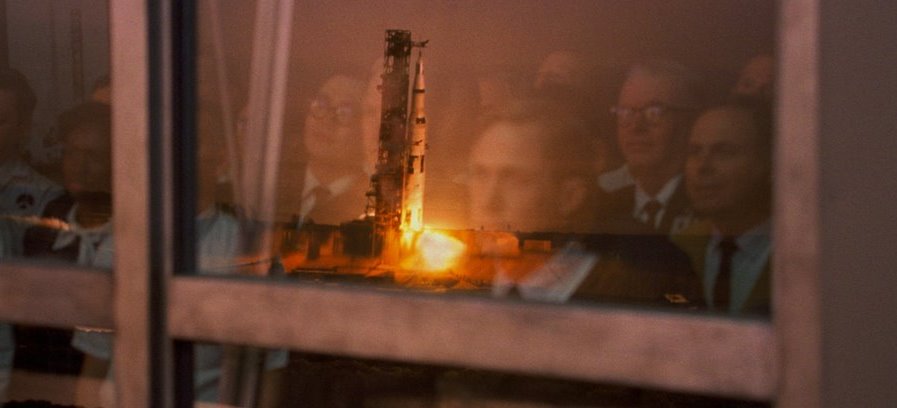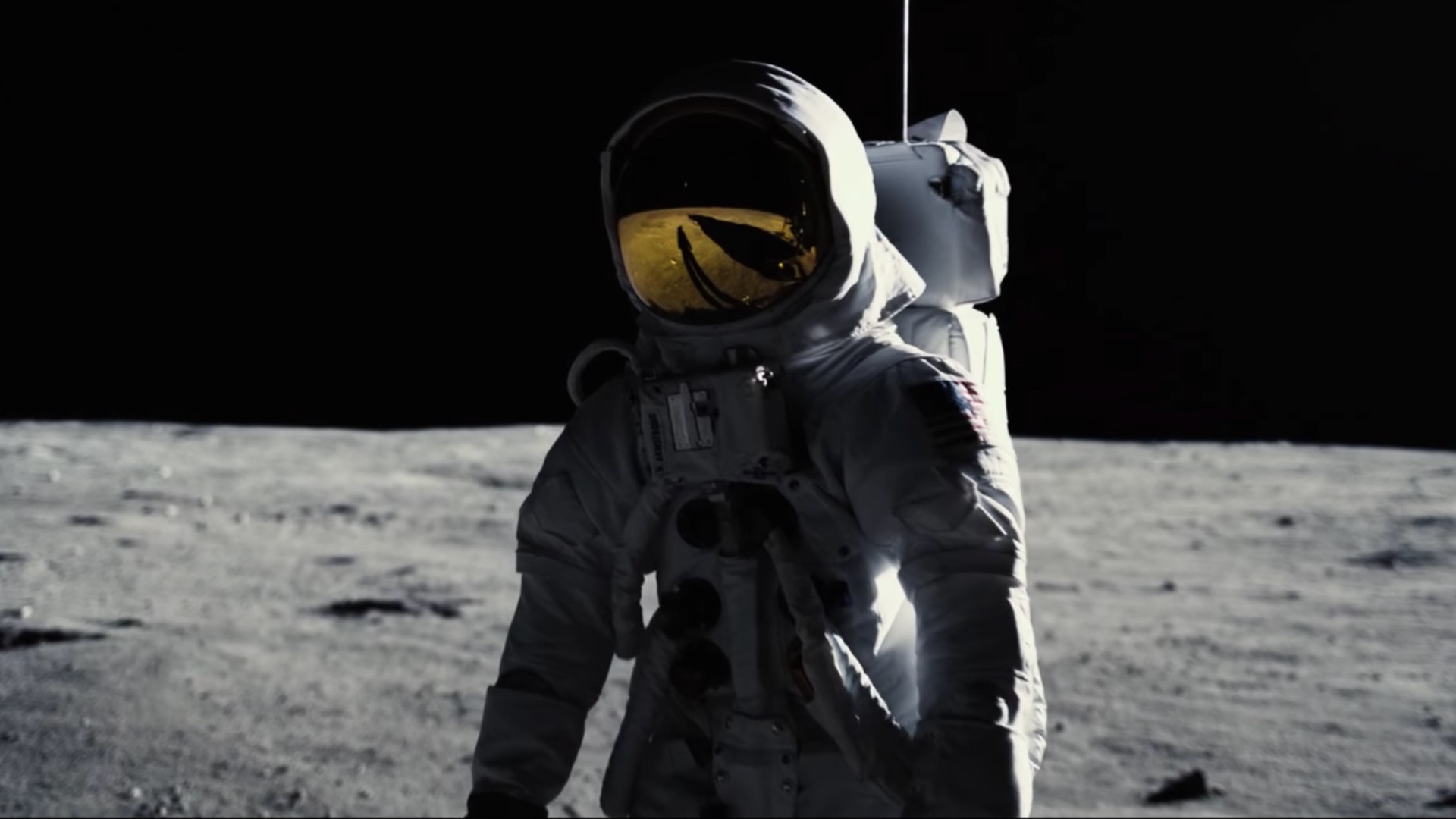Damien Chazelle, previously widely acclaimed for Whiplash and La La Land, has just come back with his third major studio film, First Man. A picture about space was not exactly the kind of offering expected from a director so far focused on smaller scope narratives of a very personal variety. That said, Chazelle’s new opus is not a typical space movie. Yet, it is, as a matter of fact, exceedingly personal – or at least to a much higher degree than some viewers would be willing to accept.
Based on Neil Armstrong’s biography by James R. Hansen (First Man: The Life of Neil A. Armstrong) and adapted for screen by Josh Singer (Spotlight), it tells a story of the famous astronaut not in praise of the nation to which he was born, but as a testament to an individual human being. For, despite the fact that his passion for the stars led him to become a symbol of the United States’ astral conquest, Armstrong’s story happens to have a much deeper and more universal significance than could ever be ascribed to his country’s textile emblem planted on the lunar surface.
Surprising in its structural simplicity, Chazelle’s film presents all stages of Armstrong’s contribution to NASA’s cosmic exploration – from the X-15 test flights, through the Gemini-8 programme, up to the Apollo missions and the subsequent landing on the moon – alongside his family life. However, it is the intentional contrast and alternation between the protagonist’s daily existence and his pursuit of space that lend the film its unique flavour. A narrative vehicle devised to depict the emotional struggle endured by Armstrong in the aftermath of his young daughter Karen’s death, the technique enables Chazelle to get to the core of his hero’s complex persona.

The key to the character’s quiet intensity, this dichotomy – so brilliantly expressed by Chazelle’s favourite Ryan Gosling – manifests itself in all aesthetic dimensions of the film, particularly in its visual and aural facets credited to Linus Sandgren (cinematographer) and Justin Hurwitz (composer). While Sandgren employs different film formats for personal scenes (16mm) and NASA’s industrial sections (35mm/IMAX) and achieves the effect of visceral authenticity through sensitive use of light and a variety of film stocks, Hurwitz opts for respectively distinct musical styles – delicate instrumental impressions vs. electronic compositions with extensive application of modular synths. A regular collaborator and best friend of Chazelle since their Harvard times, Hurwitz – who dedicated himself exclusively to First Man‘s score for the whole period of the film’s gestation – happens to have inspired the director’s two previous films portraying obsessive musical personalities. Although this time the protagonist’s idée fixe relates to the silence of space rather than to earthbound sounds, the movie’s score appears crucial in conveying a whole array of emotions which affect Armstrong (and the audience) on a truly cosmic scale.
Going utterly against the standards of flag-waving biopics about national heroes, First Man is most of all a story of pain, loss and relief found in pursuit of dreams. Revolving around imminence of death and the grand issue of the unknown, it pictures the sheer force of a human individuality permeated with passion and thirst for discovery, whose fulfilment, while providing a much-needed escape from inner turmoils, often obscures everything else in sight otherwise held dear. Once again irresistibly drawn to the subject of obsession as a means of dealing with harsh reality, Chazelle leads Armstrong’s character to ultimate consequences, showing him gradually pull back from his family and friends in a desperate attempt to shelter oneself from further emotional harm through self-induced loneliness.
Armstrong’s determination to reach his professional goal grows proportionately to the damage he inflicts on his personal life. Increasingly frustrated as a result of NASA’s continual fiascos ending in multiple casualties, he becomes hardened and distant, putting at stake the relationship with his wife (wonderfully subtle performance from Claire Foy) and children. Nonetheless, always looking up to the stars, he steadily pushes further, reminding others about the importance of failing down here in order to avoid failing up there.

The film is an excellent illustration of this fiery spirit accompanying NASA’s grit and grime beginnings. Recurrent sequences of stomach-churning tumbles and rattles in not at all glamorous cockpits of the very first spacecrafts may be off-putting to those accustomed to more “viewer-friendly” productions. Yet, First Man is a story about real people who insist on doing the same thing over and over again, gambling with their lives in order to eventually get it right. And it is Armstrong’s quiet suffering underlying his tenacity to rise to the stars that shoots this picture straight up to the cinematic skies. There won’t be a hint of exaggeration in saying that the protagonist’s final reconciliation with himself on the surface of the moon is one of the most affecting scenes in the history of cinema. That is due to the fact that under Chazelle’s direction the legendary “one small step for [a] man, one giant leap for mankind” finally attains a truly human dimension. Imbued with the most primordial and deepest of feelings, it communicates the ultimate value of our existence.
©Anna Bajor, Tracks & Frames, 2018









 English
English polski
polski português
português